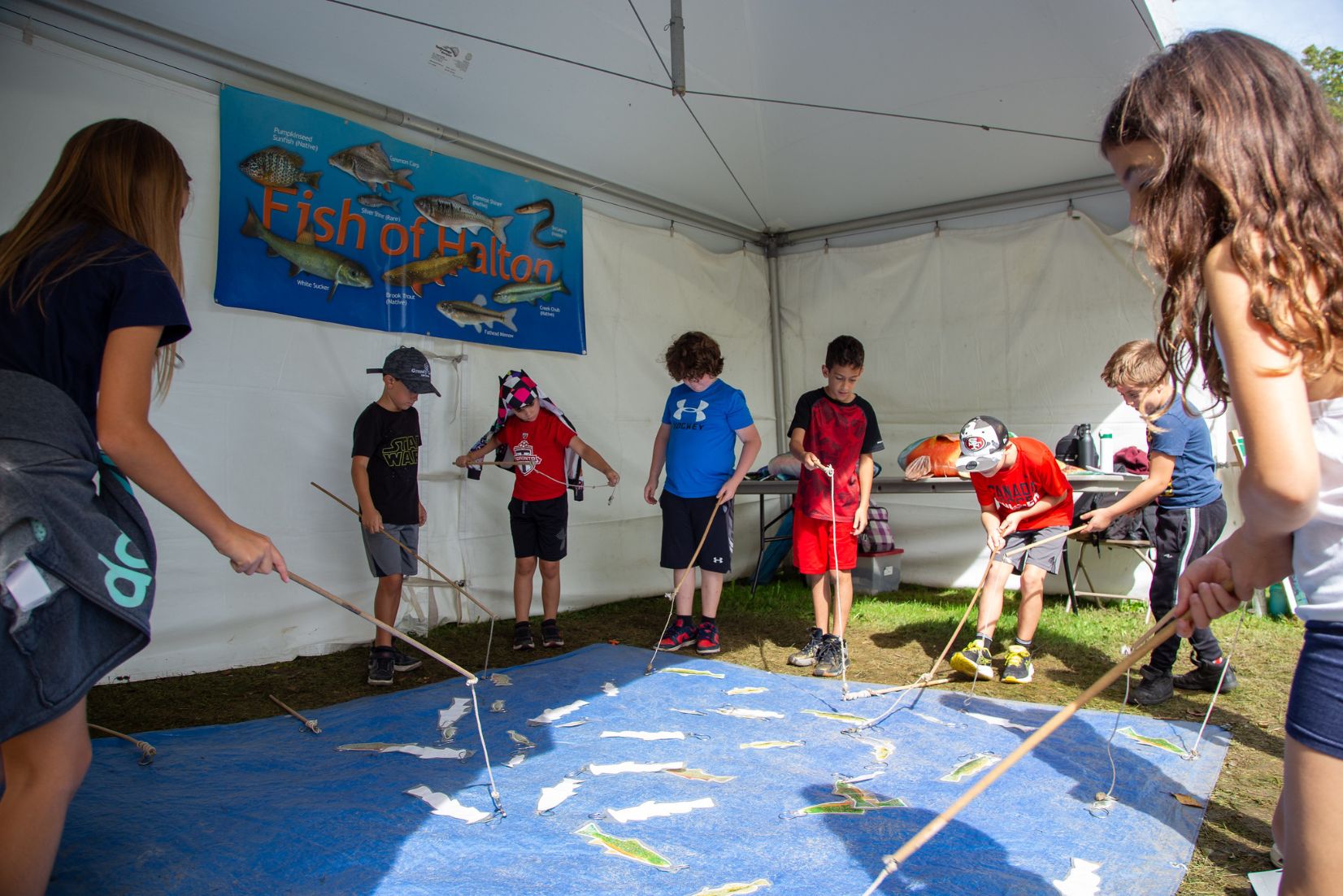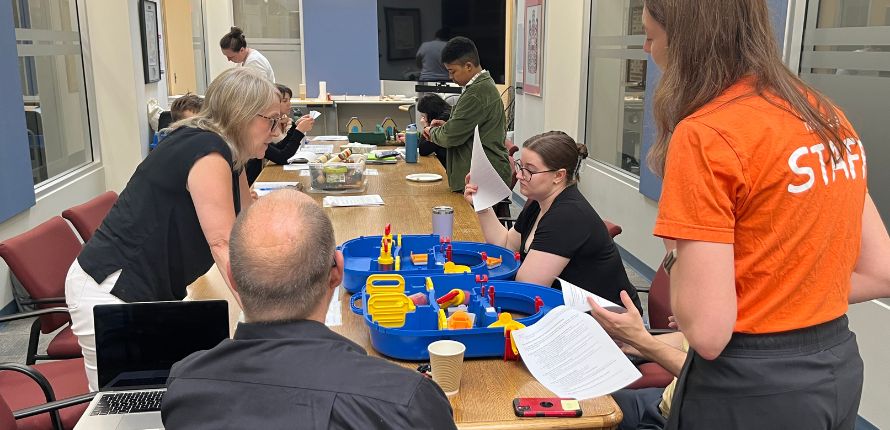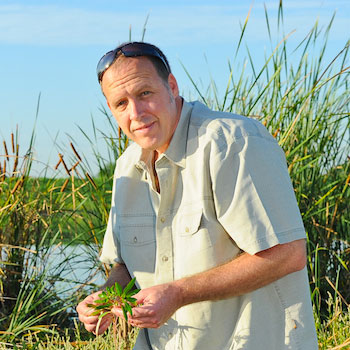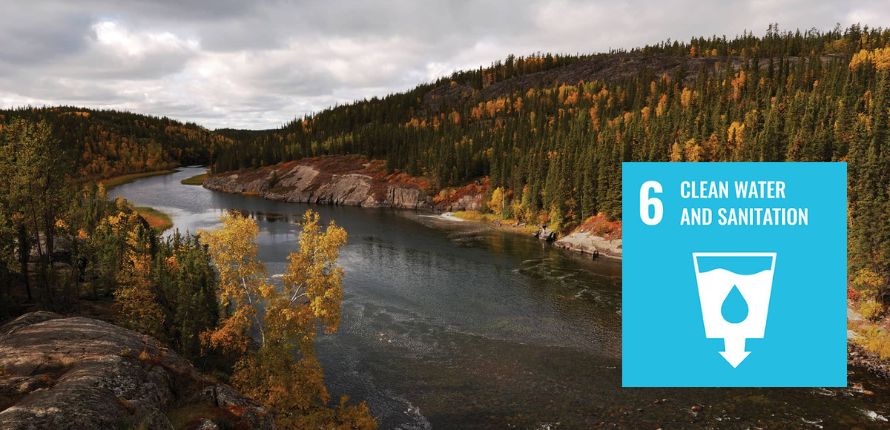Search for academic programs, residence, tours and events and more.
Aug. 12, 2025
A university-community partnership is helping to educate the next generation of water stewards in Halton Region.
The Laurier Institute for Water Science (LIWS) at Wilfrid Laurier University has supported the Halton Children's Water Festival, a popular outdoor event organized by Conservation Halton and Halton Region, since 2022. The event is designed to engage students in Grade 2 through Grade 5 in water-related topics through 60 activity stations linked to the provincial education curriculum. This year, the festival takes place Sept. 23 to 26 at Kelso Conservation Area in Milton.
In June, LIWS brought together Laurier faculty and students with expertise in water science and education with staff from Conservation Halton and the Halton Region at the university's Waterloo campus to reimagine some of the hands-on activities and include climate change content to align with elements of the climate plan for Halton Region and its surrounding municipalities.

Students learning about fish species in Halton area waters. Photo credit: Conservation Halton.
Working in small teams, Laurier students collaborated with Kevin Stevens and Jim McGeer, co-directors of LIWS and faculty members in the Department of Biology, and Avis Beek, assistant professor in the Faculty of Education, to provide feedback on select activities and offer suggestions for engaging young learners in creative and inclusive ways.
Conservation Halton staff members Jill Duvnjak, community engagement and outreach coordinator, and Erin Gibson, senior supervisor of education programs, also joined alongside Olivia Kehoe and Amy Kolisnyk from Halton Region’s Wastewater System Services team.

Laurier faculty and students collaborate on festival activities with staff from Halton Region and Conservation Halton.
“The ideas generated by the group were incredible," says Duvnjak. “Everyone brought such passion and energy to the planning session, and I am excited to incorporate the new ideas into the festival's activity stations this year."
The Laurier Institute for Water Science is a multidisciplinary collaboration among researchers in the faculties of Arts, Science and the Lazaridis School of Business and Economics with expertise in hydrological sciences, ecological and biogeochemical sciences, and public policy and environmental management.

“Collaborating with community partners like Conservation Halton and Halton Region provides opportunities for Laurier faculty and students to contribute their skills and expertise in areas such as water science, climate change and sustainability.”
Kevin Stevens, co-director, Laurier Institute for Water Science
The institute’s support of the Halton Children’s Water Festival reflects Laurier’s commitment to engaging meaningfully with the communities it serves — including in Halton Region, where the university expanded its presence with the opening of its Milton campus in September 2024.
"Collaborating with community partners like Conservation Halton and Halton Region provides opportunities for Laurier faculty and students to contribute their skills and expertise in areas such as water science, climate change and sustainability,” says Stevens. “Supporting the water festival is also an excellent opportunity for Laurier students to give back in Laurier’s host communities.”
To further Laurier’s support for the festival, Beek and Duvnjak are exploring the opportunity for a Laurier Education student to complete an alternative placement at Conservation Halton. Alternative placements provide Laurier teacher candidates with practical opportunities to experience education in a non-traditional setting.

Laurier ranked in the top four per cent of global universities for its work towards the United Nations' Sustainable Development Goal 6: Clean Water and Sanitation by Times Higher Education.
“Laurier’s teacher candidates are very current on pedagogical approaches to science, technology, engineering and math (STEM) education and how STEM is taught in a kindergarten to Grade 6 context,” says Beek. “Additional support for the festival through an alternative placement could enhance the programming Conservation Halton already has in place.”
Laurier graduate student Harper Schmalz (BSc '21) has volunteered with the water festival for two years as an on-site educator and content contributor. Schmalz is pursuing a master’s degree in Integrative Biology at Laurier alongside working as an aquatic scientist for Montrose Environmental Group in Calgary, Alberta. She sees the festival as an opportunity to engage young people in climate change initiatives and spark future career interests in environmental protection.
“As a kid, I loved being around water, especially Lake Huron, but I didn’t think that was something I could make a career out of,” says Schmalz. “Engaging the next generation early on important issues like climate change and planetary health – and inviting them to be part of the solution – is important and exciting.”
Working with community partners such as Conservation Halton and Halton Region on climate-related initiatives aligns with Laurier’s commitment to the United Nations’ Sustainable Development Goals (SDGs), which provide a comprehensive framework for Laurier to meaningfully contribute to a sustainable and equitable future for all.
Times Higher Education (THE) has ranked Laurier among the top 13 per cent of global universities in its 2025 University Impact Rankings, which ranks universities on their progress towards the SDGs. Laurier ranked in the top four per cent for SDG 6: Clean Water and Sanitation.